
Brussels sprouts are among the most maligned vegetables on the plate. Like other members of the cabbage family, which includes broccoli and cauliflower, these small veggies are nutritional powerhouses. But they also have big flavors and can taste bitter and sulfuric, perpetuating their reputation as a dreaded addition to any meal. Reduce the bitterness and enhance the natural sweetness of brussels sprouts by carefully selecting your sprouts, preparing them properly and adding the right seasonings to balance their strong flavor.
Step 1
Select small brussels sprouts that are dense and feel heavier than they look. Look for stem ends that look freshly cut and leaves that are compact. Smaller, fresher sprouts have the mildest flavor.
Step 2
Use a sharp knife to trim the stem before removing the outer leaves of each sprout. Cut the sprouts in half or cut an "X" into the stem, which can speed up the cooking, while also helping to lessen their bitterness.
Step 3
Soak the sprouts in cold water for 10 to 15 minutes. While they are soaking, put a medium or large pot of water on to boil. Once the water is boiling, add salt to the water, then add the brussels sprouts.
Step 4
Blanch the sprouts by cooking them in the boiling water for roughly two minutes. Drain and place them in ice cold water. Let them sit for about five minutes, then drain them again.
Step 5
Season the sprouts to combat bitterness. Add flavors that help balance the bitterness and effectively remove the unpleasant flavor that can develop. Choose sweet ingredients, such as maple syrup, honey or fruit juice; sour ingredients, such as rice wine vinegar, balsamic vinegar or freshly squeezed citrus; and salt, applied directly or by using a salty substance, such as bacon.
Step 6
Steam, roast or saute the brussels sprouts until they are fork-tender, with a fresh green color. Avoid overcooking them, which enhances bitterness and their sulfuric taste and smell.
Related Articles
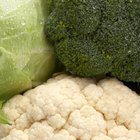
How to Steam Cauliflower & Broccoli

How to Juice a Daikon Radish

How to Freeze Ramps & Wild Leeks

How to Grill Turnips
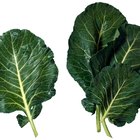
How to Make Collard Greens With Smoked ...
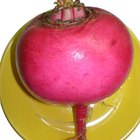
How to Roast Turnips

How to Cook Mixed Greens

How to Blanch, Peel, & Freeze Whole ...
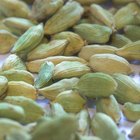
How to Remove a Cardamom Seed From a Pod

How to Freeze Edamame Soybeans
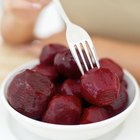
How to Boil Beetroot

How to Store Apples

What if You Don't Cook Chickpeas Long ...

How to Cook Corned Silverside in a Slow ...

Do You Soak Raw Peanuts in Water Before ...

How to Refresh Dried Fruits: Raisins

How to Cook Petite Red Potatoes
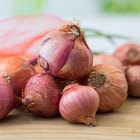
How to Store Shallots
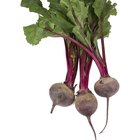
How to Freeze Fresh Beets

How to Cook Fresh Turnip Greens
References
- The Green Foods Bible: Everything You Need to Know About Barley Grass, Wheatgrass, Kamut, Chlorella, Spirulina and More; David Sandoval
- Taste: Surprising Stories and Science about Why Food Tastes Good; Barb Stuckey
- The New American Plate Cookbook: Recipes for a Healthy Weight and a Healthy Life; American Institute for Cancer Research
- Keys to Good Cooking: A Guide to Making the Best of Foods and Recipes; Harold McGee
- Sneaky Veggies: How to Get Vegetables Under the Radar and Into Your Family; Chris Fisk
Tips
- Store uncooked brussels sprouts in the vegetable drawer of your refrigerator for no more than a few days. Once they start yellowing, they've already lost many nutrients. The flavors also become stronger the longer they sit.
Writer Bio
Caryn Anderson combines extensive behind-the-scenes writing experience with her passion for all things food, fashion, garden and travel. Bitten by the travel bug at the age of 15 after a trip to Europe, Anderson fostered her love of style and fashion while living in New York City and earning her degree at New York University.
Photo Credits
George Doyle/Stockbyte/Getty Images